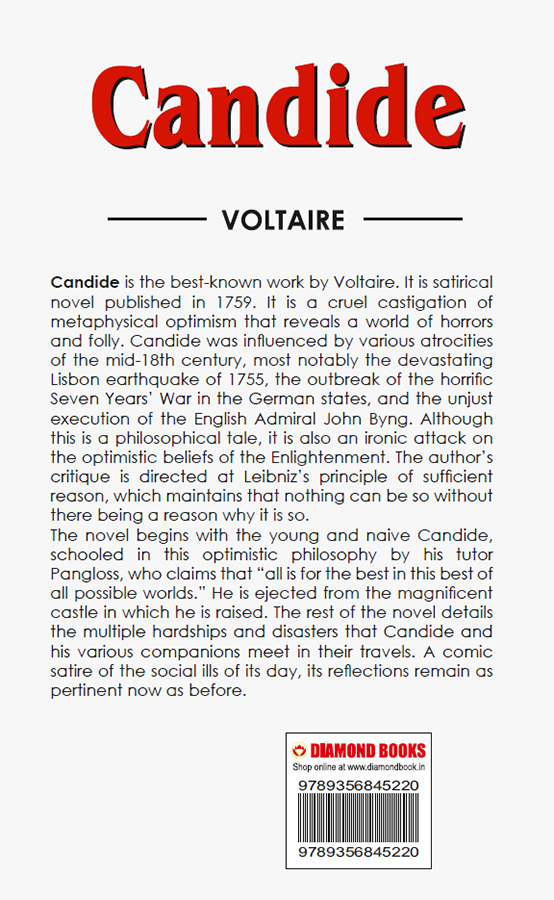Candide is the best-known work by Voltaire. It is satirical novel published in 1759. It is a cruel castigation of metaphysical optimism that reveals a world of horrors and folly. Candide was influenced by various atrocities of the mid-18th century, most notably the devastating Lisbon earthquake of 1755, the outbreak of the horrific Seven Years War in the German states, and the unjust execution of the English Admiral John Byng. Although this is a philosophical tale, it is also an ironic attack on the optimistic beliefs of the Enlightenment. The authors critique is directed at Leibnizs principle of sufficient reason, which maintains that nothing can be so without there being a reason why it is so.
The novel begins with the young and naive Candide, schooled in this optimistic philosophy by his tutor Pangloss, who claims that “all is for the best in this best of all possible worlds.” He is ejected from the magnificent castle in which he is raised. The rest of the novel details the multiple hardships and disasters that Candide and his various companions meet in their travels. A comic satire of the social ills of its day, its reflections remain as pertinent now as before.
About the Author
In 1718, after the success of Oedipe, the first of his tragedies, he was acclaimed as the successor of the great classical dramatist Jean Racine and thenceforward adopted the name of Voltaire. He worked at an epic poem whose hero was Henry IV, the king beloved by the French people for having put an end to the wars of religion. Over the years, he became interested in England, the country that tolerated freedom of thought. In England, his experience of Shakespearean theatre was overwhelming. After returning to France, Voltaire had turned to a new literary genre: history.













